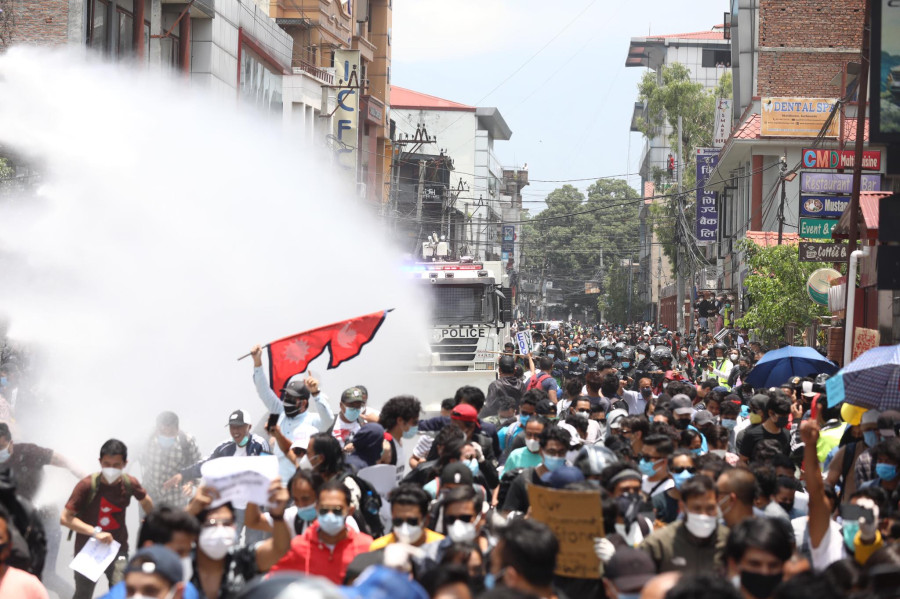Editorial
Exit strategy
More challenges lie ahead even as we learn to live with the pandemic.
As the global tally of Covid-19 surpasses the 7.3 million mark, countries around the world, including Russia and India, have begun easing their lockdowns, heralding a new phase of living with the pandemic and fighting it simultaneously. The Nepal government seems to have caught up with the global trend as well as felt the need to rectify its mistakes on the home turf as it began easing the lockdown on Thursday. Albeit necessary, the government’s unlocking plan is to be taken with a pinch of salt.
The costs of the indiscriminate lockdown had been quite high, putting poor people at risk of mass starvation and pushing entrepreneurs to the verge of bankruptcy as their incomes depleted. The lack of solid containment plans alongside the lockdown meant that widespread transmission of the virus was just delayed and not averted altogether. It's a pity that PM KP Sharma Oli, while speaking in Parliament on Wednesday, chose to sing paeans to Nepali mountains and herbal medicines rather than elaborate how it managed to spend Rs10 billion on pandemic containment and relief distribution.
Even as we learn to live with the pandemic, we are confronted with the need to change our strategies and put up a more valiant fight against it. But as of today, the government has failed to communicate what strategies it has taken to support an already overwhelmed healthcare system. Even as it finally acknowledges that the lockdown was not the only way out, it has failed to explain how it plans to tackle the new challenges that lie ahead. Our strategies warrant an immediate overhaul considering the possibilities of widespread transmission sooner than later.
With Unlock One, India has seen a record rise in transmissions as it approaches the 3 lakh mark and nearly surpasses the UK to become the fourth-biggest hit country in the world. The WHO has already recommended that Pakistan re-impose the lockdown due to the exponential spike in cases after it began unlocking at the end of May. In Nepal, too, a dramatic spike in new transmissions might even force the government to enforce the lockdown again.
In the event of such a spike, the government is certain to blame the citizens for their carelessness rather than acknowledge its incompetence. Having been confined to their homes for more than 2.5 months, citizens are itching to step out of their homes freely. But the importance of precaution on an individual level cannot be overstated. As the government fails to come up with a robust containment plan, citizens would do well to continue following safety precautions on their own: wear masks, wash hands, avoid crowds, repeat.




 14.24°C Kathmandu
14.24°C Kathmandu














